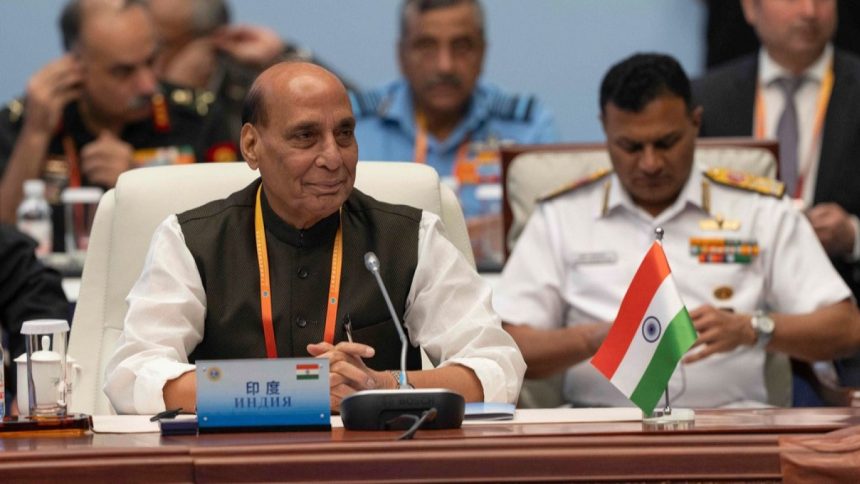India’s Defence Minister Rajnath Singh declined to sign the joint declaration at the Shanghai Cooperation Organisation (SCO) Defence Ministers’ meeting, citing the absence of reference to the April 22 terror attack in Pahalgam, Jammu and Kashmir—a mass shooting that claimed 26 lives, mostly Indian tourists.
India asserted that the proposal to include terrorism language, particularly regarding the Pahalgam attack, was blocked by a single member state—widely understood to be Pakistan—and thus the consensus-based statement could not be adopted . New Delhi argued that the omission sought to downplay cross-border terrorism, contrasting sharply with a mention of militant activity in Balochistan within the draft document.
During his address, Singh cautioned against the use of terrorism as a policy instrument under state patronage, without naming Pakistan explicitly. He underscored the urgency of confronting all forms of terrorism—including those involving cyber-attacks, drones, and hybrid warfare—while calling for stronger coordination among SCO member states to counter the radicalisation of youth.
External Affairs Minister S. Jaishankar later supported the Defence Minister’s decision, noting that one member firmly opposed inclusion of any reference to terrorism in the declaration—an approach he described as fundamentally at odds with the SCO’s founding purpose.
Pakistan’s Defence Minister Khawaja Asif attended the summit but did not engage bilaterally with his Indian counterpart, according to Indian officials.
This marks a significant moment in India’s diplomatic strategy within the SCO, reinforcing its demand for explicit condemnation of terrorism, particularly state-supported cross-border groups. The reversal comes amid New Delhi’s broader confrontation with Islamabad over accusations of sponsoring militant activities in Kashmir and elsewhere.
The SCO—established in 2001 and comprising China, Russia, India, Pakistan and Central Asian nations—relies on consensus for declarations. India’s firm stand in Qingdao exposes persistent fault lines within the organisation, challenging China’s agenda to solidify cohesive regional leadership.
As the SCO leaders’ summit approaches later this year, New Delhi’s move indicates a refusal to settle for diplomatic ambiguity on terrorism—insisting that global counter-terrorism efforts be comprehensive, transparent, and free from partisan or political shielding.




